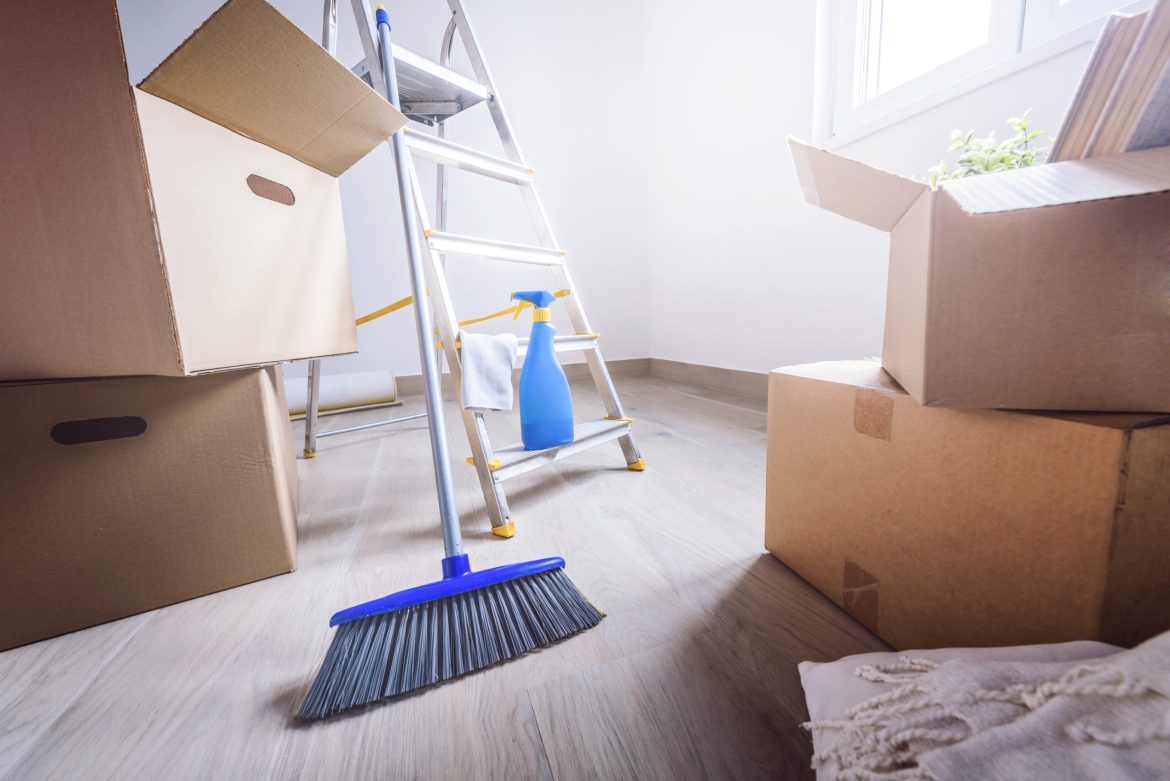Moving out of a rented property can be a hectic and stressful process, with many tasks to complete before you hand over the keys to your landlord. One of the most important aspects of this process is ensuring the property is clean and well-maintained for the next tenants. When it comes to cleaning, you have two primary options to consider: one-time cleaning and regular cleaning. Each approach has its own set of considerations, especially in the context of end-of-tenancy cleaning. Let’s delve into the details of both options to help you make an informed decision.
One-Time Cleaning
What is One-Time Cleaning?
One-time cleaning, also known as deep cleaning or end-of-tenancy cleaning, is an intensive and thorough cleaning process that aims to bring the property back to its original pristine condition. This option is typically chosen when tenants are moving out, and it involves cleaning all areas of the property, including spaces that might not be part of a regular cleaning routine.
Pros:
- Thoroughness: One-time cleaning covers every nook and cranny, leaving the property in impeccable condition.
- Impress Landlords: A well-cleaned property is more likely to leave a positive impression on your landlord, potentially leading to a smoother return of your security deposit.
- Next Tenant’s Experience: Providing a clean property for the next tenant sets a positive tone for their move-in experience.
Cons:
- Cost: One-time cleaning is generally more expensive than regular cleaning due to its comprehensive nature.
- Time-Intensive: Deep cleaning can be time-consuming, requiring significant effort to clean even the most hidden spots.
- Single Occasion: One-time cleaning is a one-off event and doesn’t provide ongoing maintenance.
Regular Cleaning
What is Regular Cleaning?
Regular cleaning involves maintaining the cleanliness of the property on a consistent basis. This usually includes tasks like vacuuming, dusting, mopping, and keeping the kitchen and bathrooms clean. Regular cleaning is typically performed on a weekly, bi-weekly, or monthly basis.
Pros:
- Cost-Effective: Regular end of tenancy cleaning London is more budget-friendly compared to one-time deep cleaning.
- Continuous Maintenance: Regular cleaning prevents the buildup of dirt and grime over time, making the cleaning process less intensive.
- Personal Convenience: If you’re living in the property, regular cleaning ensures that you’re always in a clean environment.
Cons:
- Less Intensive: Regular cleaning might not address deep-seated dirt or stains that accumulate over time.
- May Not Satisfy Landlord: Landlords often require a more thorough cleaning for end-of-tenancy situations, which regular cleaning might not meet.
End of Tenancy Considerations
When deciding between one-time cleaning and regular cleaning for the end of your tenancy, several factors come into play:
- Lease Agreement: Review your lease agreement to understand the cleaning expectations set by your landlord.
- Time and Effort: Assess your availability and willingness to invest time and effort into cleaning. One-time cleaning requires a concentrated effort, while regular cleaning demands ongoing commitment.
- Budget: Consider your budget. One-time cleaning is generally more expensive, but it might be necessary to fulfill your lease obligations.
- Landlord Expectations: If your landlord requires a specific level of cleanliness for move-out, a one-time cleaning might be essential.
- Next Tenant: Think about the next tenant’s experience. Providing a clean environment is courteous and can impact their initial impression.
In conclusion, the decision between one-time cleaning and regular cleaning for end-of-tenancy considerations depends on various factors including your lease agreement, budget, and time availability. While regular cleaning helps maintain cleanliness throughout your tenancy, a one-time cleaning ensures a thorough restoration of the property’s condition, which can be crucial for meeting landlord expectations and securing your security deposit. Assess your needs, circumstances, and lease terms to make the best choice for your specific situation.

